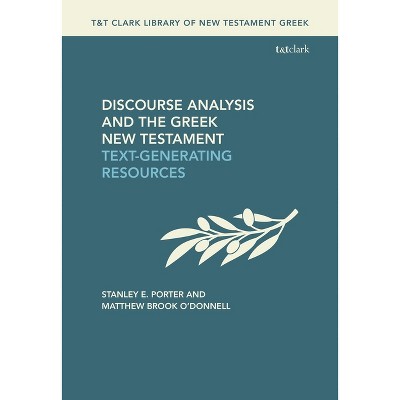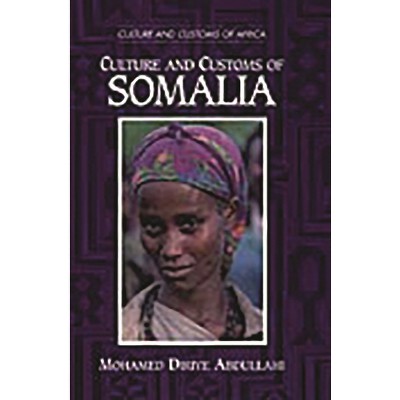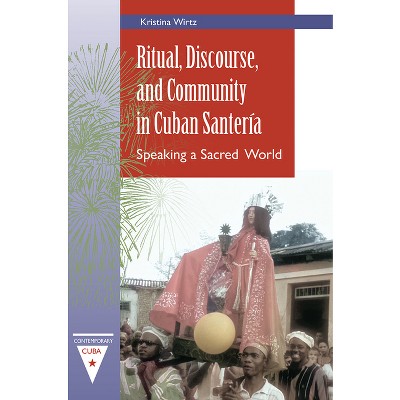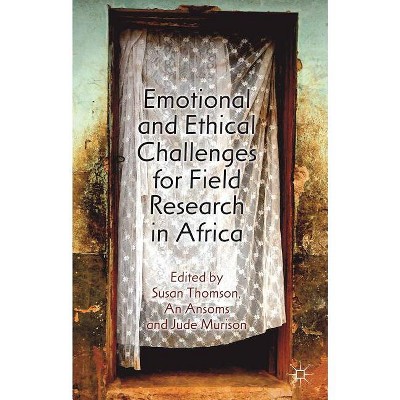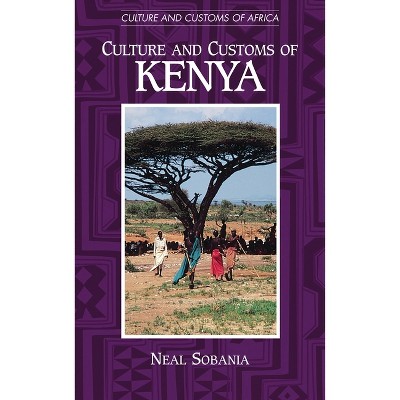Witch Camps and Witchcraft Discourse in Africa - by Matthew Gmalifo Mabefam (Hardcover)

About this item
Highlights
- Witch Camps and Witchcraft Discourse in Africa: Critiquing Development Practices explores how local development interventions related to witchcraft in Africa intersect and conflict with globally accepted development practices.
- About the Author: Matthew Gmalifo Mabefam is a lecturer in anthropology and development studies in the School of Social and Political Sciences at the University of Melbourne.
- 208 Pages
- Social Science, Anthropology
Description
About the Book
This book explores how local development interventions related to witchcraft in Africa intersect and conflict with globally accepted development practices. It argues for expansion and diversification of development practices and problematizes international development practice...Book Synopsis
Witch Camps and Witchcraft Discourse in Africa: Critiquing Development Practices explores how local development interventions related to witchcraft in Africa intersect and conflict with globally accepted development practices. This book argues that development practitioners need to pay attention to what concepts like "witchcraft" and "occult" mean to local people, and provides a nuanced account of how different development actors conceptualize and approach development in Africa through communities of refuge. Matthew Mabefam invites development practitioners to be open to culturally sensitive solutions to social inequalities, rather than dismissing them and acting in ways that may further aggravate the challenges faced by individuals accused of witchcraft. The foundational knowledge for the book is derived from ongoing ethnographic fieldwork in Gnani in Northern Ghana--a rural community that provides refuge for people who have been banished from their communities--and is deeply informed by the author's experiences of growing up and working within refuge communities in Ghana. This book contributes to the decolonization of development epistemes, knowledge, and practices, and contributes to a better understanding of the limits of the neo-liberal paradigm of socio-economic development that has dominated the direction of development policy.Review Quotes
"Development and occult power are two perennial topics in African studies scholarship. This fascinating work examines how beliefs in occult force and development policies meet in contemporary northern Ghana. Mabefam, an anthropologist from this region, uses his insider knowledge and his mastery of the literature on witchcraft well. Rejecting claims that beliefs in occult force are hindrances to social development, he shows how the impact of neoliberal policies led to changes in how and why people were accused of using occult methods to harm others. In northern Ghana, the predominately female and elderly people charged with witchcraft have been forced into settlements for their own protection against their accusers. State and NGO representatives find themselves uneasily balancing personal beliefs in the power of witchcraft with their responsibilities to protect marginalized people and to promote economic growth. People living within these settlements generally oppose leaving, even if development agencies would prefer they reintegrate into their home communities. This analysis serves as a very good introduction to the literature on development and witchcraft, to the point faculty should consider using it in undergraduate and masters-level courses. Highly recommended. Advanced undergraduates through faculty; professionals." --Choice Reviews
"Mabefam's excellent and engrossing study offers a sound ethnography of the controversial 'witch camps' and local witchcraft ideas in northern Ghana. The book shakes and reshapes our understanding and intellectual engagement with the highly positional, slippery and tensional concepts such as witchcraft and 'witch camps', and calls to attention the need to decolonize orthodox scholarship and neo-liberal (presumably Western) epistemologies that have dominated development and academic discourses on African witchcraft since the time of colonialism." --Saibu Mutaru, University of Cape Coast "If you want to know about witchcraft and witch camps in Africa, this is the book for you. Although perceptions about witch camps are negative, surprisingly, this book projects the camps as safe sanctuaries because the alleged witches are under the protection of the chief who oversees the camp. I recommend this book because there is something almost valiant in the way inescapably invisible dogmas about witchcraft are carved as confusing and at the same time, the phenomenon is queried as to whether it is an opportunity for wealth or a course for (in)equality and (dis) empowerment." --Mavis Dako-Gyeke, University of Ghana "Although perceptions about witch camps are negative, surprisingly, this book projects the camps as safe sanctuaries because the alleged witches are under the protection of the chief who oversees the camp. I recommend this book because there is something almost valiant in the way inescapably invisible dogmas about witchcraft are carved as confusing and at the same time, the phenomenon is queried as to whether it is an opportunity for wealth or a course for (in)equality and (dis) empowerment." --Mavis Dako-Gyeke, University of GhanaAlthough perceptions about witch camps are negative, surprisingly, this book projects the camps as safe sanctuaries because the alleged witches are under the protection of the chief who oversees the camp. I recommend this book because there is something almost valiant in the way inescapably invisible dogmas about witchcraft are carved as confusing and at the same time, the phenomenon is queried as to whether it is an opportunity for wealth or a course for (in)equality and (dis) empowerment.
Development and occult power are two perennial topics in African studies scholarship. This fascinating work examines how beliefs in occult force and development policies meet in contemporary northern Ghana. Mabefam, an anthropologist from this region, uses his insider knowledge and his mastery of the literature on witchcraft well. Rejecting claims that beliefs in occult force are hindrances to social development, he shows how the impact of neoliberal policies led to changes in how and why people were accused of using occult methods to harm others. In northern Ghana, the predominately female and elderly people charged with witchcraft have been forced into settlements for their own protection against their accusers. State and NGO representatives find themselves uneasily balancing personal beliefs in the power of witchcraft with their responsibilities to protect marginalized people and to promote economic growth. People living within these settlements generally oppose leaving, even if development agencies would prefer they reintegrate into their home communities. This analysis serves as a very good introduction to the literature on development and witchcraft, to the point faculty should consider using it in undergraduate and masters-level courses. Highly recommended. Advanced undergraduates through faculty; professionals.
If you want to know about witchcraft and witch camps in Africa, this is the book for you. Although perceptions about witch camps are negative, surprisingly, this book projects the camps as safe sanctuaries because the alleged witches are under the protection of the chief who oversees the camp. I recommend this book because there is something almost valiant in the way inescapably invisible dogmas about witchcraft are carved as confusing and at the same time, the phenomenon is queried as to whether it is an opportunity for wealth or a course for (in)equality and (dis) empowerment.
Mabefam's excellent and engrossing study offers a sound ethnography of the controversial 'witch camps' and local witchcraft ideas in northern Ghana. The book shakes and reshapes our understanding and intellectual engagement with the highly positional, slippery and tensional concepts such as witchcraft and 'witch camps', and calls to attention the need to decolonize orthodox scholarship and neo-liberal (presumably Western) epistemologies that have dominated development and academic discourses on African witchcraft since the time of colonialism.
About the Author
Matthew Gmalifo Mabefam is a lecturer in anthropology and development studies in the School of Social and Political Sciences at the University of Melbourne.






